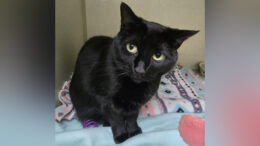HARRISBURG, Pa. (AP) — The judge in Pennsylvania Attorney General Kathleen Kane’s criminal case is considering whether to allow jurors to hear about a pornographic email scandal her office unearthed and a political ally’s statements that suggest Kane was obsessed with revenge.
Kane’s trial in Montgomery County court begins Aug. 8. Montgomery County Judge Wendy Demchick-Alloy is expected to rule on the motions before trial.
Kane, a first-term Democrat, is accused of leaking secret investigation information to the Philadelphia Daily News in 2014 to embarrass rival prosecutors and then lying about it under oath. She maintains that she did nothing wrong and is fighting the charges.
The motions, filed in recent days, revolve around whether Kane leaked the information to smear two former state prosecutors she blamed for the publication of an embarrassing March 2014 story in The Philadelphia Inquirer. That story reported that Kane had shut down a corruption sting targeting public officials in Philadelphia.
Montgomery County prosecutors want the judge to keep discussion of the email scandal out of the trial.
Kane has argued that the two former prosecutors — Frank Fina and Marc Costanzo — propelled the leak investigation to stop her from releasing any of the offensive emails that were discovered in their email accounts on the office’s servers.
But prosecutors say that theory does not account for her “multiple false statements under oath,” and “one is left to presume that she believes Fina and Costanzo somehow forced her hand to lie” to the grand jury.
Kane has insisted that she gave information to the Daily News out of a desire for the public to know about a 2009 investigation — headed by Fina and Costanzo — that, her office suggested, had ignored evidence against a key figure.
Kane’s lawyers contend that, since prosecutors intend to argue that Kane sought revenge on Fina and Costanzo, they should be able to argue that Kane “had a far more powerful means of retaliation at her disposal.”
Kane’s office first released some pornographic or offensive emails in 2014, setting off a wave of firings and resignations. But Fina and Costanzo were not among those identified as senders or receivers of those emails until court officials last August unsealed a trove of sexually explicit emails as exhibits in Kane’s criminal case.
Telephone conversations involving Kane political consultant Josh Morrow — and apparently recorded in a separate investigation — also underscore Kane’s revenge motive and are “critical evidence” in proving that Kane lied, prosecutors said in a court filing.
They also help corroborate Morrow’s grand jury testimony, prosecutors said.
Morrow, helped deliver documents from Kane’s office to the Daily News. In an April 22, 2014, telephone conversation, Morrow allegedly told a friend that Kane had asked him to leak documents to a reporter. Those documents involved Fina “killing an investigation” involving the former head of the NAACP’s Philadelphia chapter, Morrow told the friend.
“In addition, Morrow questioned the strategy behind the leak and described (Kane) as being unhinged,” prosecutors wrote.
In a conversation recorded three days later, Morrow allegedly recounted Kane’s request that he get a hold of unflattering political “opposition research” on Philadelphia District Attorney Seth Williams.
Williams employed Fina and Costanzo after they left the attorney general’s office. Williams also was critical of Kane’s handling of the corruption sting, and his office has since taken over the case and won guilty pleas from most of the sting’s targets.
Kane’s lawyers argue that Morrow’s telephone conversations should not be admissible. Only a small portion could be admissible if Morrow’s credibility is questioned during trial, while most of it is hearsay or prejudicial opinion testimony about Kane’s character, they argue.
Kane was charged with perjury, obstruction and other offenses last year. She is also accused of lying under oath, claiming that she never signed a secrecy oath preventing her from releasing information from grand jury cases.
The state Supreme Court suspended Kane’s law license last year, and she has declined to run for a second term. Her term ends in January.
































